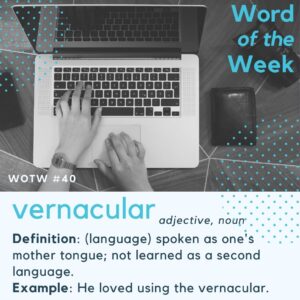The word, vernacular, is commonly used in Malaysia when we discuss the system of education. Do you know that it deals with architecture and dance as well?

Vernacular is used as a noun and as an adjective.
As a noun, it is used to refer to:
a) the language or dialect spoken by the ordinary people in a particular country or region, or
b) a local style in which ordinary houses are built; not the styles used for monuments or public buildings
c) dance, music, art, etc. that is in a style liked or performed by ordinary people.
When used as an adjective, it is
a) (of language) spoken as one’s mother tongue; not learned or imposed as a second language, or
b) (of architecture) concerned with domestic and functional rather than public or monumental buildings. (e.g. vernacular buildings)
Here are some examples of how the word is used:
- For most houses in Malaysian cities, concrete is the vernacular.
- We need to preserve the vernacular buildings in the villages as they provide valuable insights to our history.
- We cannot come to a common agreement that vernaculars should be used in teaching science at the elementary level.
- The respect given to a traditional vernacular is often cited as an impediment to contemporary interventions especially in rural environments. (From the Cambridge English Corpus)
- My bilingualism is of a mixed, vernacular variety.
- Her vernacular writings reflect influence from the tribal culture.
- Galileo wrote in the vernacular to reach a larger audience.
- Vernacular education is a hotly debated issue.
#wotw #wordoftheweek #englishvocabulary

